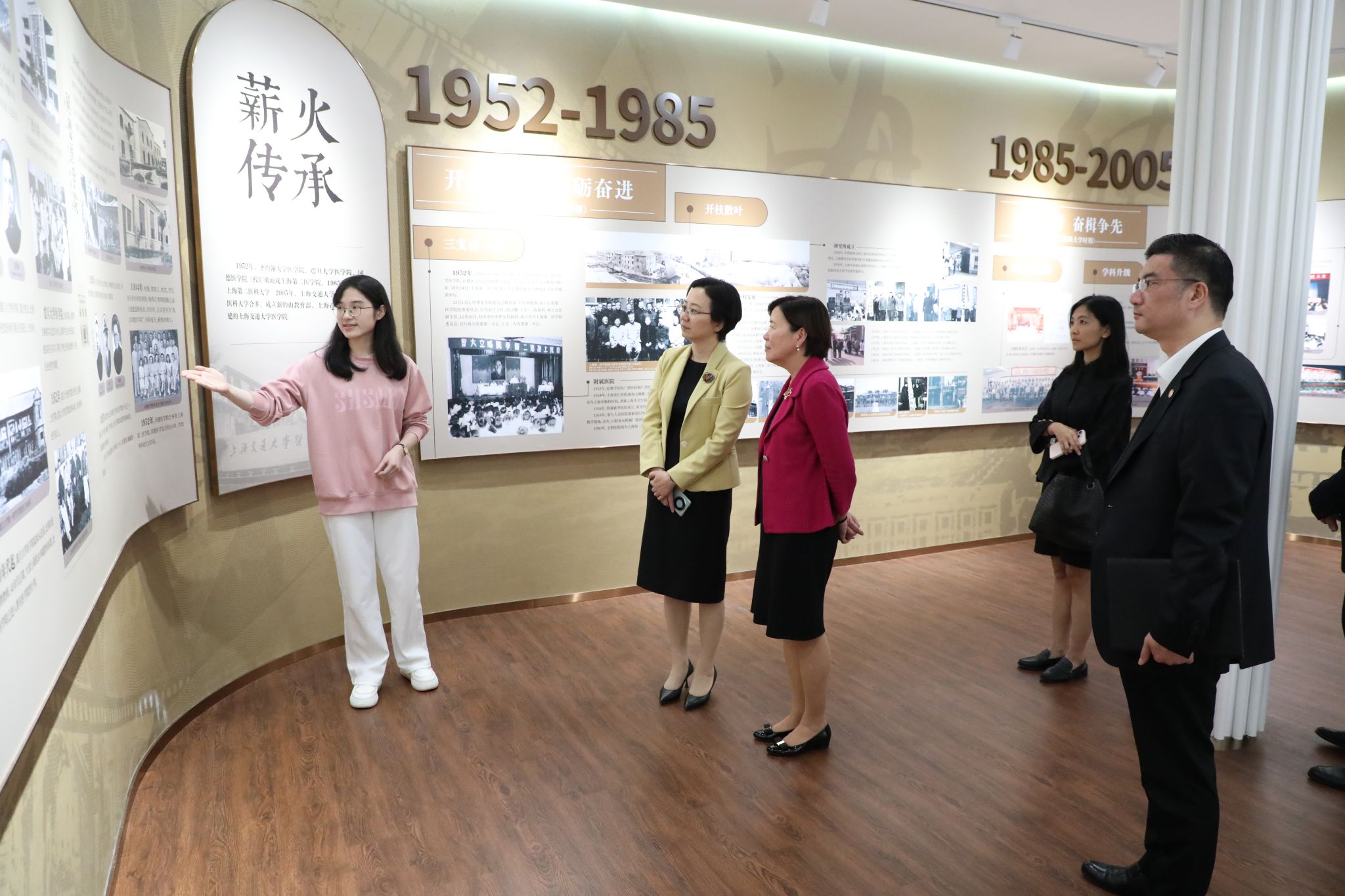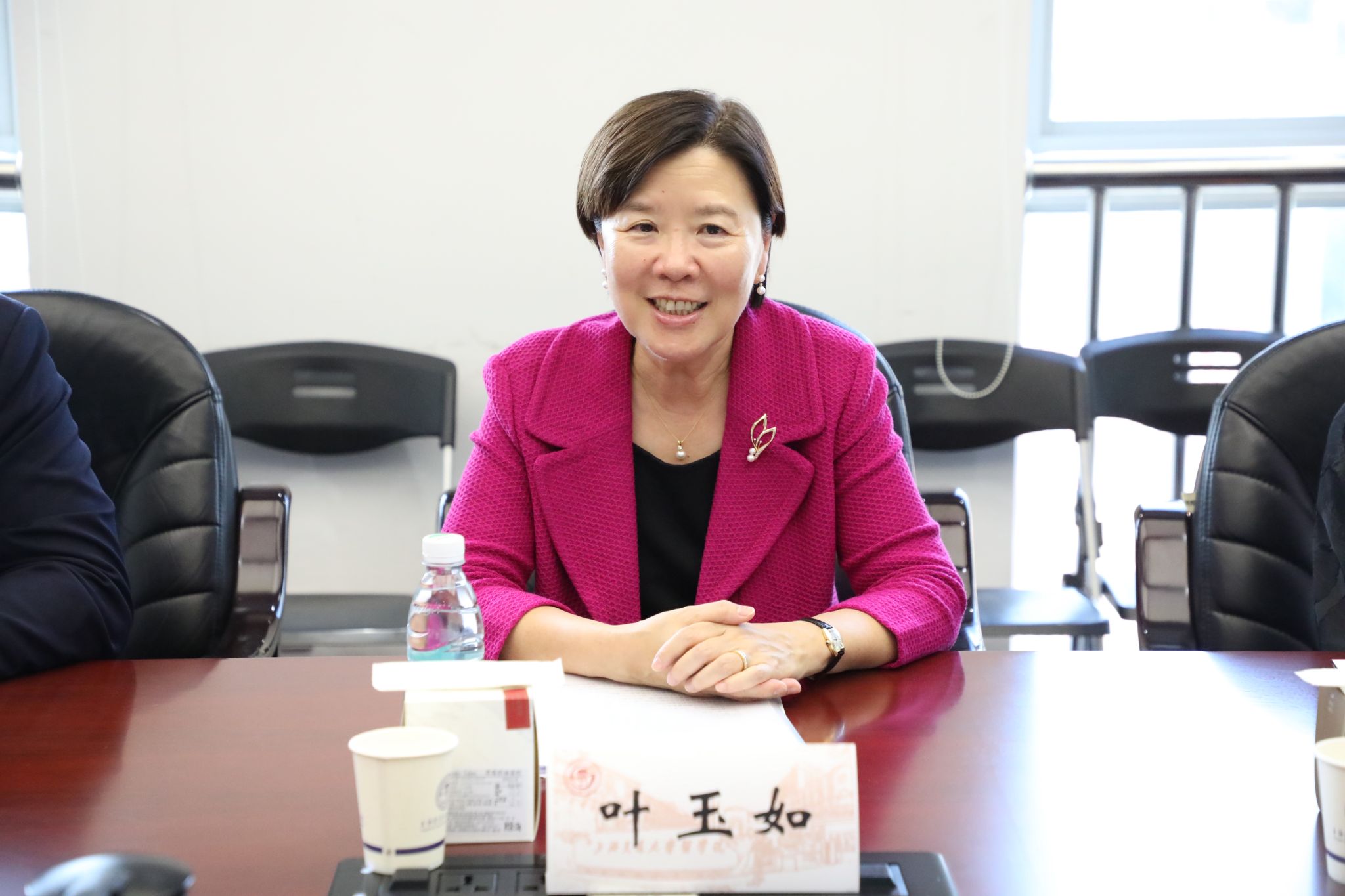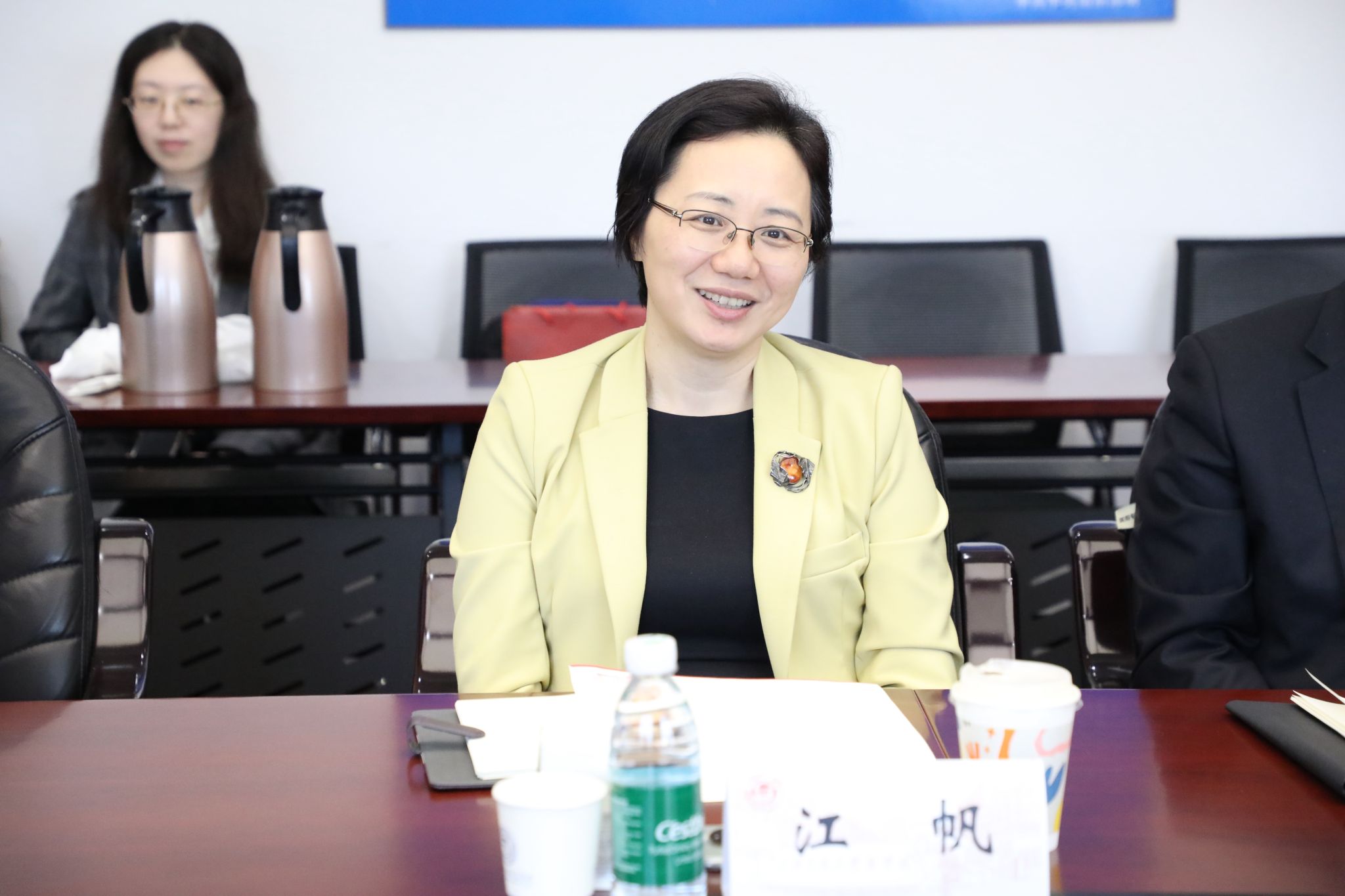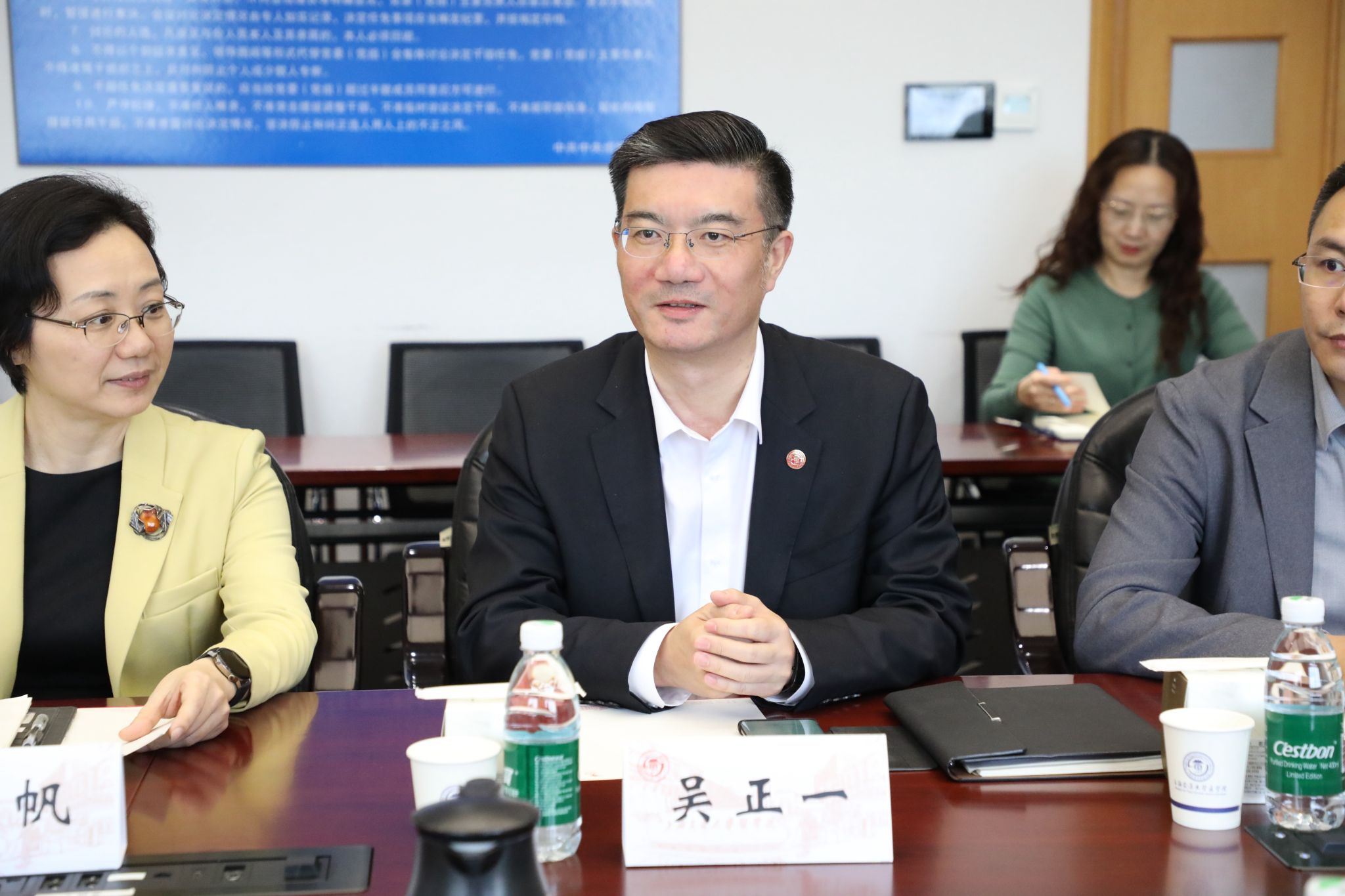On the afternoon of October 24, Professor Nancy Ip, President of the Hong Kong University of Science and Technology (HKUST) and an Academician of the Chinese Academy of Sciences, visited Shanghai Jiao Tong University School of Medicine (SJTUSM). She was warmly received by Jiang Fan, Chair of the Deans’ Council at SJTUSM, and Wu Zhengyi, Deputy Secretary and Vice Chancellor.

President Ip and her delegation enthusiastically toured the SJTUSM History Museum, gaining a comprehensive understanding of the school’s development, including its history, academic achievements, and milestones in talent cultivation, education, research, and healthcare services.

Following the tour, both parties engaged in a discussion session.
President Ip provided a brief overview of HKUST, describing it as a young yet vibrant research university that prioritizes education, scientific research, and innovation. She highlighted that HKUST is currently establishing an innovative, research-oriented, and international medical school and is also setting up the HKUST Shanghai Center, which will focus on artificial intelligence, semiconductors, and biomedicine to drive innovation and entrepreneurship. She expressed her hope to foster deeper collaboration with SJTUSM in areas such as talent development, technological innovation, and translational research.
Subsequently, Chen Yu, Executive Vice Dean of the Shenzhen-Hong Kong Institute for Brain Science Innovation, provided an overview of the institute. Co-led by the Shenzhen Institute of Advanced Technology and the Hong Kong University of Science and Technology, the institute is a foundational research entity jointly developed by Shenzhen and Hong Kong. It focuses on scientific research centered on brain cognition and the neural mechanisms underlying major brain diseases while cultivating a new generation of cutting-edge, interdisciplinary talent in brain science.

Jiang Fan acknowledged the remarkable progress HKUST has achieved since its founding, noting its reputation as a world-class research university. She emphasized that the establishment of the HKUST Shanghai Center presents an excellent opportunity to explore multi-disciplinary collaboration, particularly in the field of medical-engineering integration. Jiang proposed that the two institutions jointly host a medical-engineering forum to provide a platform for sharing academic achievements between Shanghai and Hong Kong. She expressed SJTUSM’s strong willingness to support the development of HKUST’s medical school and looked forward to high-level collaboration in talent cultivation and innovation aligned with Shanghai’s strategic industries and international medical research frontiers.

The discussion session was chaired by Wu Zhengyi. Representatives from SJTUSM’s Office of Hong Kong, Macau, and Taiwan Affairs, the Department of Scientific Research, the Academic Affairs Office, the College of Basic Medical Sciences, and other departments and experts participated in the discussion.
Founded in 1991, HKUST is Hong Kong’s first research university, boasting a strong foundation in scientific research and a diverse array of leading international scholars and experts. The university excels in fields such as neuroscience, genetics, bioengineering, data science, artificial intelligence, multi-omics, and precision drug discovery. HKUST ranked among the global top 50 in the QS World University Rankings for 2025.

